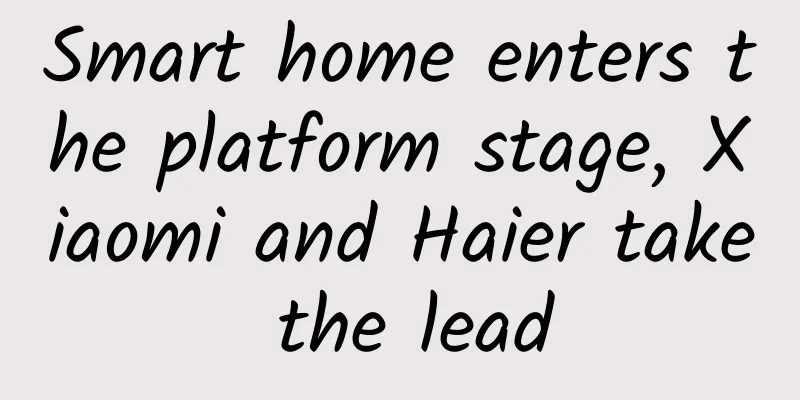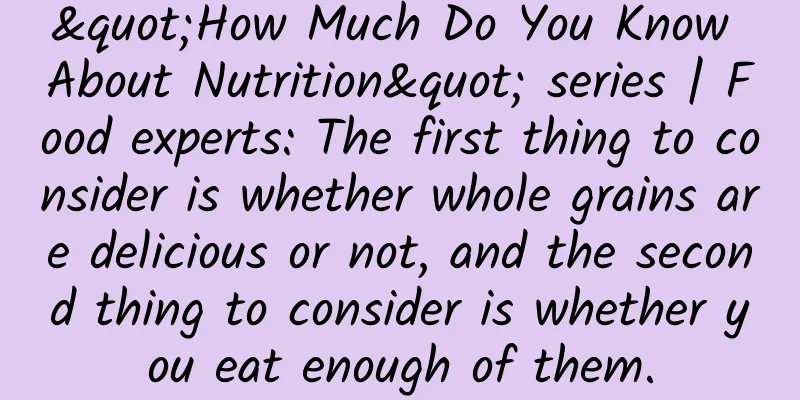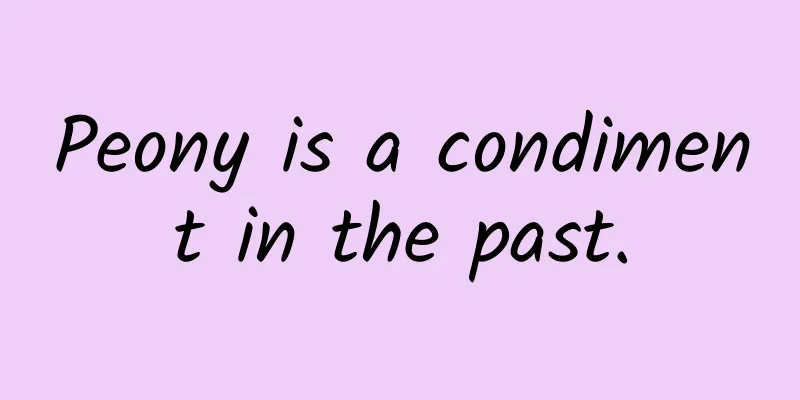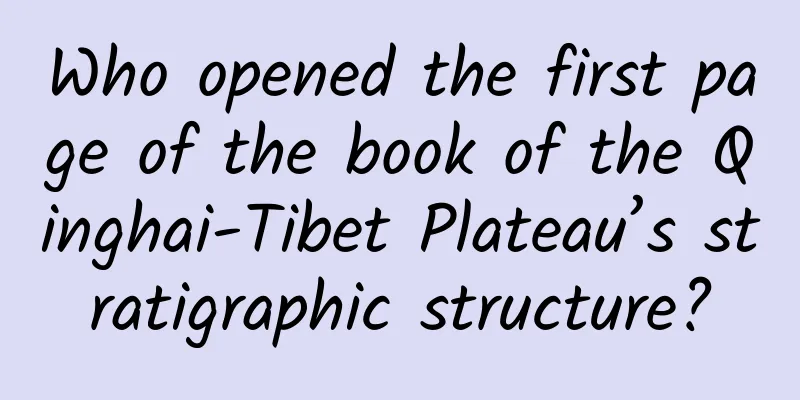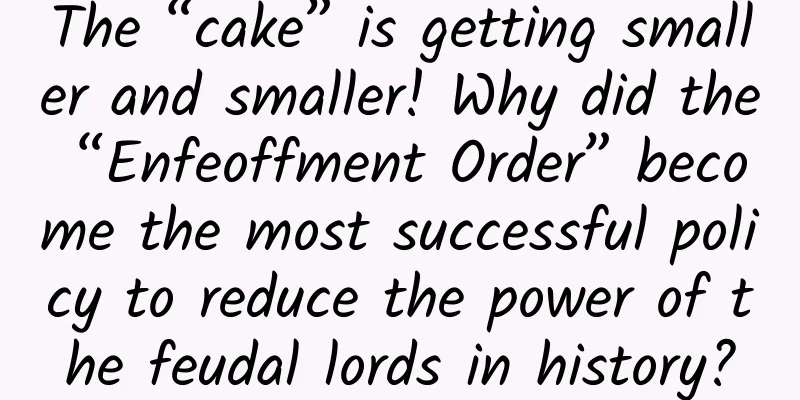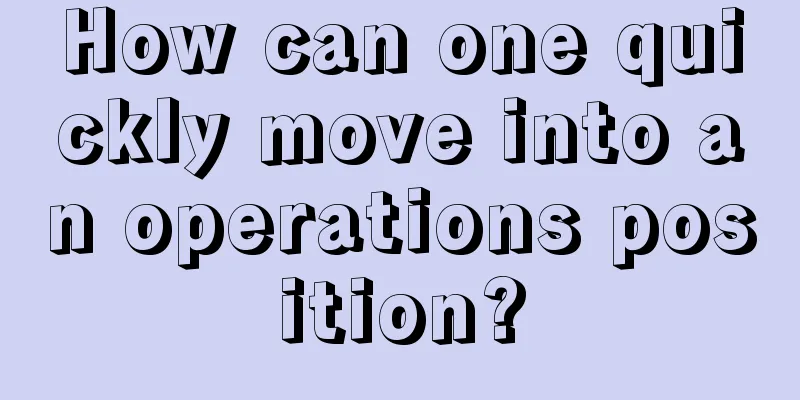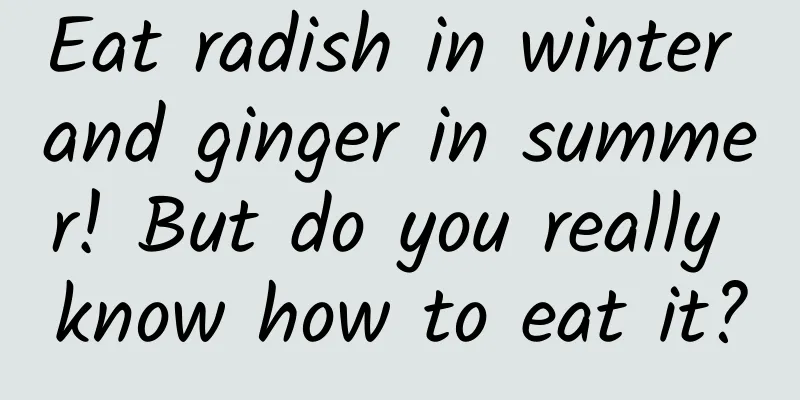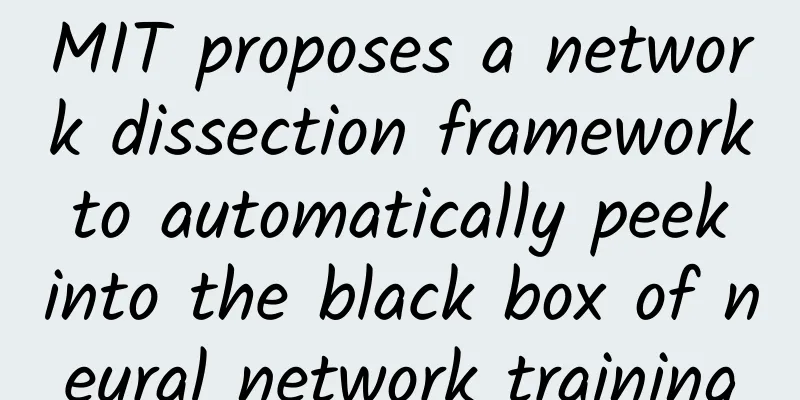When you are under too much pressure, you just want to "lie down"? This is actually the brain's self-protection mechanism!
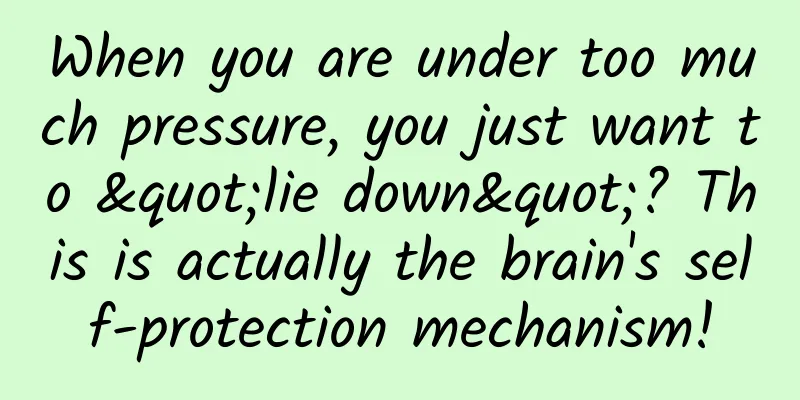
|
There is a kind of work-related injury, especially at the end of the year, called "work is endless": endless clients to meet, endless meetings to attend, endless manuscripts to write, endless overtime work... There is simply no end to the work! If you ask why roosters start crowing before dawn, they must be screaming for the endless work that office workers have to do as soon as they open their eyes! Copyright images in the gallery. Reprinting and using them may lead to copyright disputes. However, I wonder if you have noticed that when waves of pressure come one after another, we will try to hold on at first, but if the pressure accumulates to the point where we can’t breathe, we tend to lie down on the spot and lose motivation. Why is this so? Let’s explore it today. The lack of "relief pleasure" Let me first talk about why we still persist in the face of tremendous work pressure. First, on the scale of "suffering" and "enjoyment", most people tend to prefer the latter. Decades ago, Freud, the founder of psychoanalysis, proposed the "pleasure principle", emphasizing that happiness is the core driving force of human behavior. Research in the field of cognitive neuroscience further supports this view. Many studies have found that the reward system in the brain can respond positively to pleasant experiences, releasing neurotransmitters such as dopamine and oxytocin, motivating us to repeat behaviors that bring happiness. However, people still often choose to "endure hardship" and are willing to temporarily give up immediate enjoyment for long-term goals. This is because the "sweetness" in "after suffering comes sweetness" can bring a happy experience beyond direct enjoyment - "relief". "Relief" is a psychological experience of being relieved after experiencing pain or stress. Professor Hu Hailan of Zhejiang University's research revealed that "relief" plays a key role in the brain's reward system as a natural anti-depressant resilience mechanism. The brain's reward system is crucial in regulating emotions and physiological behaviors. Under chronic stress, the activity of dopamine neurons responsible for encoding reward responses remains suppressed. However, once stress is relieved, the dopamine system reactivates, triggering a feeling of pleasure after decompression. Professor Hu Hailan's research published in the journal Neuron found that when experimental mice were relieved from an uncomfortable environment, dopamine neurons in the ventral tegmental area of the brain became abnormally active, and this active state could last up to 5 minutes, far exceeding the short-term activity caused by direct rewards. Further research revealed the different roles of two subpopulations of dopamine neurons in encoding the pleasure of relief: the first subpopulation was continuously activated for 9 minutes, like an extra insurance for happiness; the second subpopulation was only briefly activated for 6 seconds, but it could quickly send us a signal of "don't despair, good things are coming." It can be seen that when we break free from difficulties, the reward effect brought about by stress relief not only allows us to experience happiness, but also enhances our psychological resilience, prepares us for the next "hardship", and strengthens our determination to "hardship". However, in the dilemma of "endless work", we have suffered a lot of "bitterness", but the "sweetness" has never come. The "pleasure of relief" that has not been experienced for a long time is like a carrot hanging on the head of a donkey, which will sooner or later dry up and rot. What's the point of talking about hard work, what's the point of enduring hardships, what's the point of pursuing goals? Everything has become pale and powerless, so just lie down. "Want system" weakened "Like" and "want" are two different driving forces. We may like work but don't want to go to work; for example, an illustrator likes to draw illustrations but doesn't like to meet clients' needs. We may also like being single but want to get married, for example, a single woman with a house and a car enjoys freedom but is under pressure from relatives and friends to get married. "Like" comes from our inherent enjoyment and satisfaction in a particular activity, and from the release of "happy molecules" in the brain's reward system. When we taste delicious food, enjoy music, or do pleasurable exercise, the heartfelt joy is the embodiment of "like". "Wanting" is manifested as the pursuit and desire for rewards, which is regulated by the dopamine system. Dopamine helps us capture reward signals and motivates us to move forward to obtain more rewards. Whether it is career advancement, pursuit of love or the realization of personal goals, it is the result of unremitting efforts driven by "wanting". Under normal circumstances, "like" and "want" complement each other and work together. If we only "like" but not "want", we will not take the initiative to do it; for example, I like to buy books, but I don't have the motivation to open them. I just buy them and read them, and the books can only be covered with dust on the bookshelf. If we only "want" but not "like", the process will lose its fun; even if the goal is achieved, the emptiness in the heart will be difficult to fill. The philosophy of "after suffering comes sweetness" reveals how the dynamic balance between "liking" and "wanting" motivates and drives us to "endure hardship". "Sweetness" represents a pleasant experience, which is a reward for positive behavior and is what we "like"; while persistence in "bitterness" comes from the expectation and desire for "sweetness", that is, the power of "wanting". It gives us persistence and courage to withstand the hardships before the arrival of "sweetness". Kent Berridge, a professor at the University of Michigan, has revealed this mechanism through his research: the nucleus accumbens, the core structure of the brain's reward system, not only controls the motivation of "wanting", but also controls the opposite impulse of "escaping". In other words, one end of the nucleus accumbens is responsible for generating desire, while the other end generates fear. Under continuous pressure, the area of fear expands and the area of desire shrinks; on the contrary, in a relaxed environment, the area of desire expands and fear decreases. Therefore, if there is no breathing space, our "wanting" motivation will gradually wear out under heavy pressure, and we will fall into a helpless state of lying down. “Lying down” is to stand up! Excessive stress and endless work not only deprive us of the "pleasure of relief", but also weaken the motivation of "wanting", which eventually leads to an imbalance in the brain's reward system and a self-protective "escape" response. Just as a mobile phone that runs out of power automatically enters power saving mode, our brain will also adopt a strategy of escape or reducing effort when facing extreme stress in order to restore inner balance and peace. Copyright images in the gallery. Reprinting and using them may lead to copyright disputes. In this context, the "lying flat" phenomenon can be seen as a natural reaction of the brain to protect itself from further damage. It is important to understand that "lying flat" is not equivalent to giving up, but a strategic adjustment and accumulation of energy. When it comes to lying down, the most popular and popular posts on the Internet are mostly about quitting your job to pursue a new life, or losing your passion for work because you are just waiting for a job. But this is probably not the norm for ordinary people. Most people's "lying down" is not really giving up, but adhering to the principle of "don't be bullied, don't be too tired", working hard but refusing to work overtime, and devoting themselves to life but refusing to waste time. This kind of "lying down" is to set a healthy boundary between work and life, to manually create a space for "relaxation" for yourself, and to give the brain's "want system" a chance to recharge. Through a short period of "lying down", people have the opportunity to re-examine their lives and find the "pleasure of relief" that is covered up by busyness and pressure. Conclusion "Three days of fishing and two days of drying the net" does not necessarily mean a lack of perseverance or willpower. This intermittent way of working is an effective strategy to obtain "relieving pleasure" and maintain the "want system". Finding a balance between tension and relaxation can not only free us from constant pressure and enjoy rare relaxation and pleasure, but also rekindle our passion for work in the process and inject lasting power into the "want system". References [1] Leonard Mlodinow. Emotions: Variables that influence correct decision making. Beijing: China Translation Press. 2022. [2] YiyanDong, YifeiLi, XinkuanXiang, etal.Stressreliefasanaturalresiliencemechanismagainstdepression-likebehaviors.Cell, 2023.DOI:10.1016/j.neuron.2023.09.004 [3] Zheng, Planning and production Author: Su Jing, National Level 2 Psychological Counselor Reviewer: Yang Xiaoyang, Associate Professor, School of Psychology, Sichuan Normal University |
<<: Here, there is a colorful "palette" that has not faded for hundreds of millions of years.
Recommend
Remembering Academician Yang Le: "We must write the names of Chinese people in mathematics books"
October 22, 2023 Academician of the Chinese Acade...
AI Internet: Imagine a life without work
Recently, I have discussed a lot about the future...
A simple way to quickly and effectively increase real reviews on the App Store!
No matter how the industry spreads that reviews a...
[Pearl Science] A Scientific Look at Nano Pearl Powder
Nanomaterials refer to materials that have at lea...
Baidu Apollo's Lego-style car intelligence solution is upgraded to launch a new autonomous driving car every month in the second half of 2021
On April 19, 2021, the 19th Shanghai Internationa...
10 basic skills necessary for operating Douyin
Douyin became a huge hit like a bolt from the blu...
The 10 most disappointing founders of 2015
[[161252]] Editor's note: In this article, St...
The world's deepest underground laboratory has made important progress!
Wang Jing, Wang Chao, Shen Qiushi, Science and Te...
Intel's most powerful storage technology to replace SSD and memory begins shipping
Every gamer wants to have 3D Xpoint. This is the ...
Real Physics Terms: Microscopic Particles in Quantum Physics
When creating proper nouns, one principle is to r...
How to save your fragile stomach after a big meal? 11 probiotics reviews
After eating and drinking a lot throughout the Sp...
Gartner: Apple's global smartphone market share dropped to third place in the first quarter
Against the backdrop of a shrinking global smartp...
The dream sets sail again: Meizu PRO5 Gold Edition set photo gallery
As a new sub-brand launched by Meizu to target th...
My neck makes a crackling sound when I turn it. Is it cervical spondylosis? The truth is...
Myth: "If you hear a crackling sound when yo...
Zhou Dawei Bodybuilding Training Course
Zhou Dawei's bodybuilding training course res...
